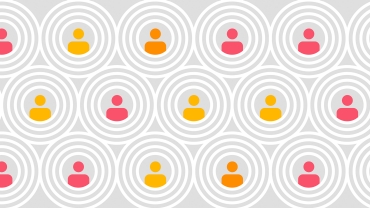
How sick is Philippine healthcare?
The average life expectancy of a Filipino in the Philippines is 71 years. It’s like on the average, people who retire at age 65 only have virtually five more years to live. Some countries in Asia have average life expectancies of above 80 (like Japan, South Korea, Singapore) while developed countries elsewhere in Europe and the US have 82 years and older. So people living in these developed countries live longer by a decade compared to Filipinos.
It would have something to do with the reasons why the Philippines fell to 104th spot among 175 countries in the global ranking of best and worst countries for children to grow up in, owing largely to malnutrition and its stunting effects. A telling indication is that the greater part of the Philippine workforce are minimum wage earners. And for a breadwinner of a household of four, P10,000+ monthly would barely cover basic needs, and would leave nothing for health or medical-related expenses.
Free medical consultation provided by public hospitals doesn't work if the sick has no money to buy the medicines, let alone lifetime maintenance medicines.
Countries with higher life expectancies actually spend larger amounts in healthcare. World Bank data says that the Philippines spends USD133 per capita, which is a fraction compared to that of Japan (USD4,200), South Korea (USD2,300), and Singapore (USD2,600).
Here, there is an estimate of six doctors for every 10,000 in our population, versus 25 per 10,000 on the average in developed countries. But the bigger eye-opener is that based on government salary grading, our doctors make a mere fraction of what their counterparts in more developed Southeast Asian countries, Europe and the US make. This partly explains why despite having 130,000 licensed doctors, only 70,000 practice here. Many try their luck on foreign soil, even if that means downgrading themselves from doctors to nurses.
There is so much subsidy and government spending needed, such that when you hear and read about massive corruption (thanks to whistleblowers) in the Philippine Health Insurance Corporation (Philhealth) over the years, you would wonder whether the annual increase in premium contributions set by the Universal Health Care (UHC) Act is needed to pay for health care costs or simply needed to fund the losses from corruption.
As of now, the PwC Philippines data analytics team estimates that by December 2020, Philhealth would have an estimated negative cash balance of P27.1 billion. In fact, Philhealth’s runway would be as short as a troubled MSME except that Philhealth has reliable government support and access to an increased premium contribution.
Annually, the government injects funds to Philhealth to pay premiums for indigents, senior citizens and the like and also to augment Philhealth’s funds for administrative expenses. The budget as allotted by the General Appropriations Act for Philhealth was P54.1 billion in 2018, P67.3 billion in 2019, and P71.4 billion in 2020.
Truth be told, even with unemployment and underemployment of an estimated three million of our workforce, but because of the new higher premium rates under the UHC Act, Philhealth would be able to make a profit if those remaining employed would completely pay. What data is showing however is that the increased contributions are not being remitted, and most likely because businesses have run out of cash.
We know that every time the government funds Philhealth, it is doing so with taxpayers’ money, and these premium increases in the UHC Act are of course going to be paid for by the hard-earned money of our labor force. Are people at least assured that they will get the benefits?
What is the impact of the possibility declared by a hospital organization that about 300 hospitals might close? They are not making money and their Philhealth claims are long outstanding. Philhealth claims its turnaround time has improved (average of 30 days over the past three years) but its financial statements show that their claims payable is outstanding by an average of 139 days over the last three years -- a lot of lag, even if patients’ confinement period is deducted.
Can hospitals whose claims remain unpaid refuse to be the victims, and just withdraw their Philhealth accreditation, so they can refuse patients who use Philhealth benefits? Legally yes, but for everyone, that will be a mess.
There must be an accounting; there must be jail time and reparation if there is fraud. But Philhealth should undergo digital transformation, for transparency and accountability. All benefit claims should be processed through an online system where records of patient’s hospital admission, diagnosis, treatments until discharge are digitally captured and are restricted from alterations; and includes a time-stamped approval workflow. All uploaded documents should also bear approval of the hospital officer. Data analytics and artificial intelligence tools can help validate claims and pay-outs. There should be a continuous audit tool embedded in the system that alerts the Commission on Audit of exceptions, which should prompt them to conduct detailed investigation. And a more robust whistle-blowing policy that’s protective of the whistleblower, should be a refuge for bringing to light all forms of fraud in the organization.
People and companies are asked to bear the increased premiums, but can the government go beyond rhetorics and act against those who steal money for people’s healthcare without let-up until they are put behind bars? The country’s healthcare is sick, but not untreatable. As big as it is, Philhealth is but a microcosm, yet a good place to start.
Alexander B. Cabrera is the chairman and senior partner of Isla Lipana & Co./PwC Philippines. He is the Chairman of the Integrity Initiative, Inc. (II, Inc.), a non-profit organization that promotes common ethical and acceptable integrity standards. Email your comments and questions to aseasyasABC@ph.pwc.com. This content is for general information purposes only, and should not be used as a substitute for consultation with professional advisors.
Contact us







